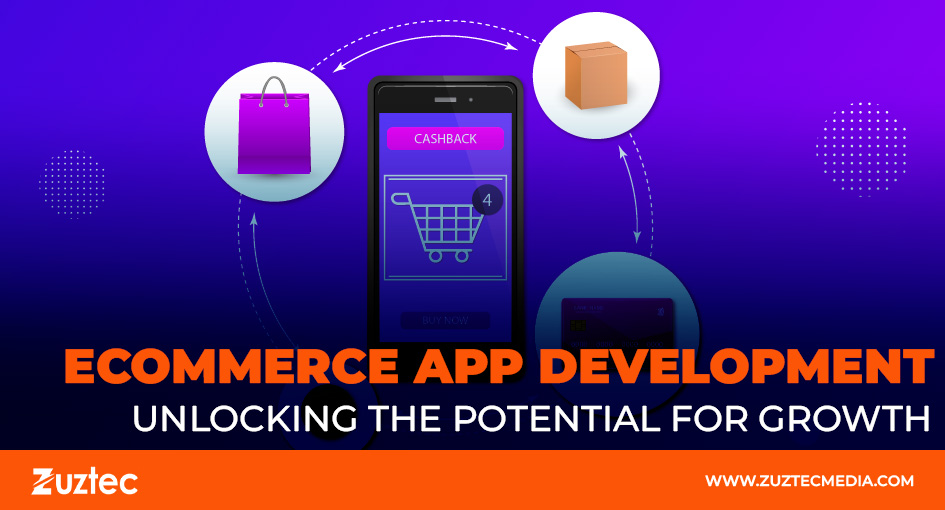
Ecommerce App Development: Unlocking the Potential for Growth
In today’s fast-paced world, the demand for mobile ecommerce platforms has skyrocketed. More and more businesses are recognizing the importance of having an ecommerce app development strategy to stay competitive. The convenience of shopping on mobile devices has made ecommerce apps essential for reaching a wider audience and enhancing customer satisfaction.
Ecommerce apps provide customers with a seamless, on-the-go shopping experience, which can lead to increased sales and customer loyalty. For businesses, developing an effective ecommerce app can open up new revenue streams and improve brand visibility.
Why Ecommerce App Development Is Vital for Businesses Today
The Surge of Mobile Ecommerce
As mobile technology continues to evolve, more consumers are opting to shop via their smartphones or tablets. According to recent statistics, mobile ecommerce accounts for a significant portion of global online sales, and this trend is expected to continue growing. With the increasing use of mobile apps, businesses cannot afford to ignore the importance of an ecommerce app strategy.
An ecommerce app not only enhances the user experience but also allows businesses to offer personalized services. Through apps, businesses can target customers based on their preferences, browsing history, and previous purchases. This level of personalization can significantly boost sales and customer retention. The rise of ecommerce apps has shifted the traditional online shopping experience into something more dynamic and user-focused.
Competitive Edge and Customer Engagement
In a competitive marketplace, having a mobile app for your ecommerce store is no longer optional—it’s a necessity. Businesses with mobile apps can engage customers more effectively and encourage frequent interactions. From push notifications about new products or sales to seamless in-app purchasing experiences, an ecommerce app creates opportunities for businesses to stay connected with customers at all times.
Moreover, apps allow businesses to create loyalty programs, provide discounts, and offer other exclusive features that enhance customer satisfaction and retention. By leveraging these tools, businesses can increase their market share and build stronger, lasting relationships with their audience.
Key Features of Ecommerce App Development
User-Friendly Interface and Navigation
When developing an ecommerce app, the user interface (UI) and navigation play a crucial role in the app’s success. A clean, intuitive UI makes it easier for users to find products, browse categories, and complete transactions. A well-organized navigation system enhances the customer experience by ensuring they can easily explore your store’s offerings without any confusion or frustration.
For instance, a popular clothing store app might offer a simple interface with categories like “Men,” “Women,” “New Arrivals,” and “Sale,” allowing users to quickly find what they’re looking for. Additionally, using high-quality images, clear fonts, and straightforward buttons can make the shopping experience pleasant and efficient.
Secure Payment Gateways and Transactions
Security is one of the top priorities for ecommerce app development. Since users will be inputting sensitive information, such as credit card details, it is essential to incorporate secure payment gateways. Popular options like PayPal, Stripe, and Apple Pay ensure safe transactions and build trust with customers.
An app with multiple payment options and robust security measures will instill confidence in customers, reducing cart abandonment rates. Moreover, security features like two-factor authentication (2FA) can further enhance the app’s credibility and ensure that users’ personal data is protected.
Real-Time Inventory Management
For ecommerce businesses, managing inventory efficiently is critical. An ecommerce app must integrate real-time inventory management to provide accurate product availability. This ensures that customers are never shown items that are out of stock, which could lead to frustration and lost sales.
Real-time inventory tracking also helps businesses avoid overstocking or understocking items, which can significantly impact revenue. Features like automated stock updates and low-stock notifications ensure that businesses are always prepared to meet demand.
How to Develop an Ecommerce App: Key Steps
Planning and Research
Understand your target audience, analyze competitor apps, and identify the features that would benefit your business. Creating a comprehensive plan that outlines your app’s objectives, features, and user experience (UX) is crucial for a successful launch.
Design and Development
A visually appealing and easy-to-use design is key to creating an engaging app. Work with experienced designers to create an intuitive UI that aligns with your brand identity. Focus on making navigation smooth, ensuring that users can find products and make purchases with ease.
Development involves coding the app’s functionality, including features like secure payment integration, push notifications, and product recommendations. Depending on the platform (iOS or Android), you may need to choose between native or hybrid app development. Native apps tend to offer better performance, but hybrid apps can be more cost-effective and suitable for businesses targeting multiple platforms.
Testing and Launch
Before launching the app, thorough testing is necessary to ensure everything works as expected. Check for bugs, broken links, and compatibility issues across several devices and screen sizes. Additionally, confirm that your payment gateway is operational and that the app runs well in high traffic conditions.
After testing, it’s time for the launch. Consider offering special promotions or discounts to entice customers to download the app and make their first purchase.
In conclusion, ecommerce app development is a crucial step for businesses looking to stay competitive in the digital age. An effective mobile app can enhance the customer experience, increase conversions, and build brand loyalty. By offering personalized services, secure payment options, and real-time inventory management, businesses can create a seamless shopping experience that keeps customers coming back.
As ecommerce continues to grow, investing in a mobile app is one of the smartest decisions a business can make. With the right strategy, design, and development, an ecommerce app can become a powerful tool for business growth and customer satisfaction.

